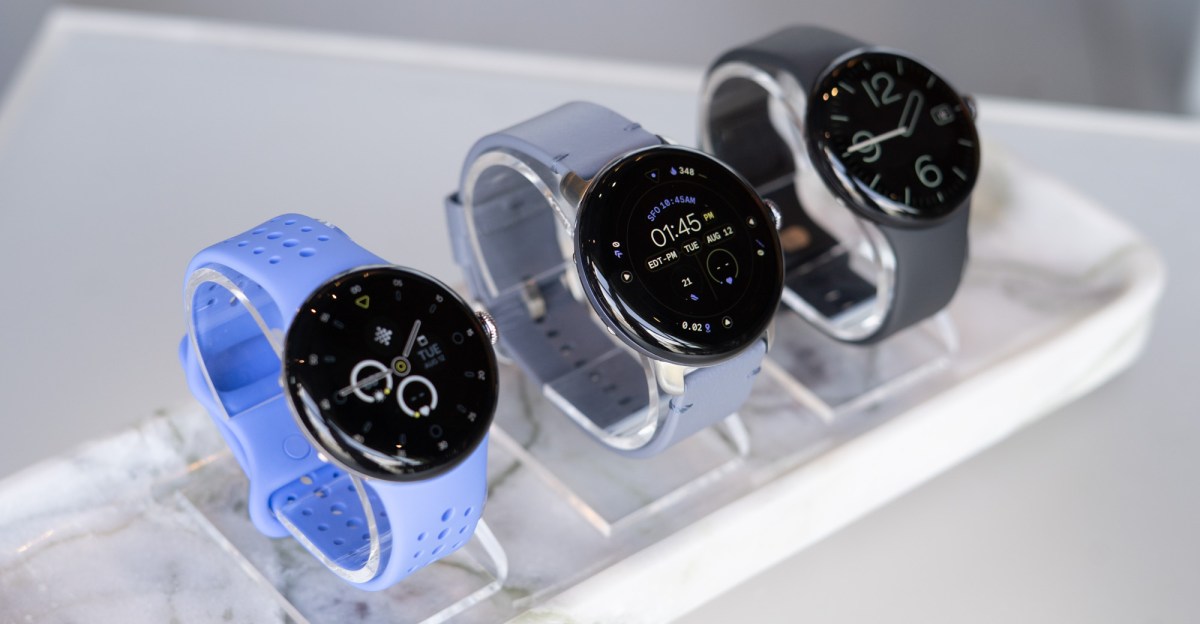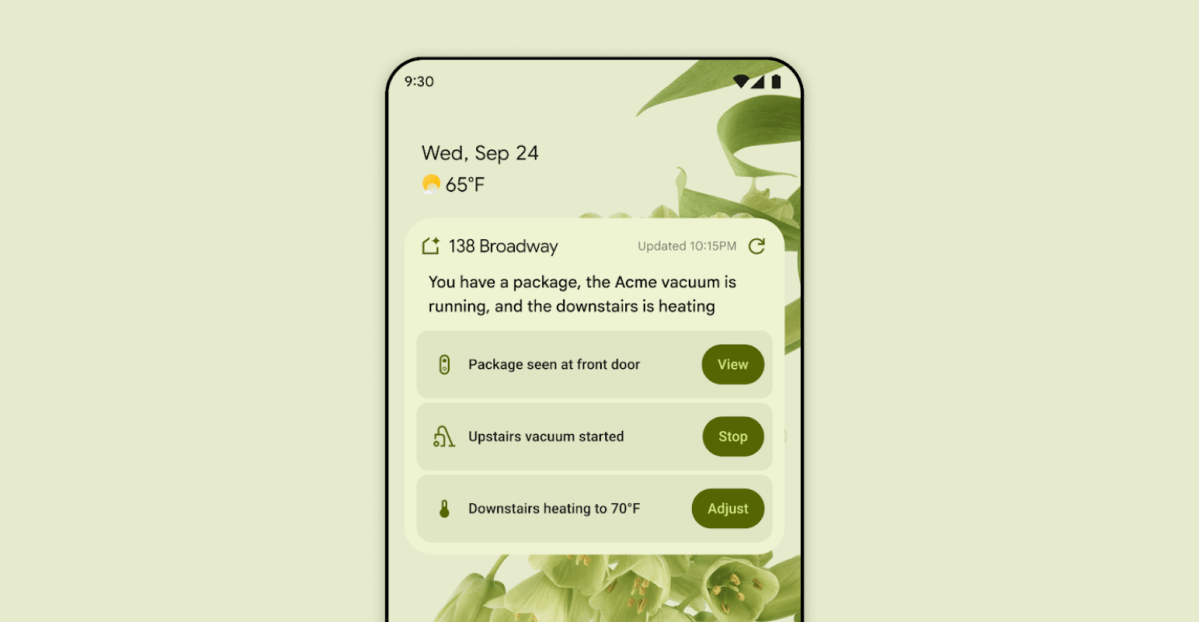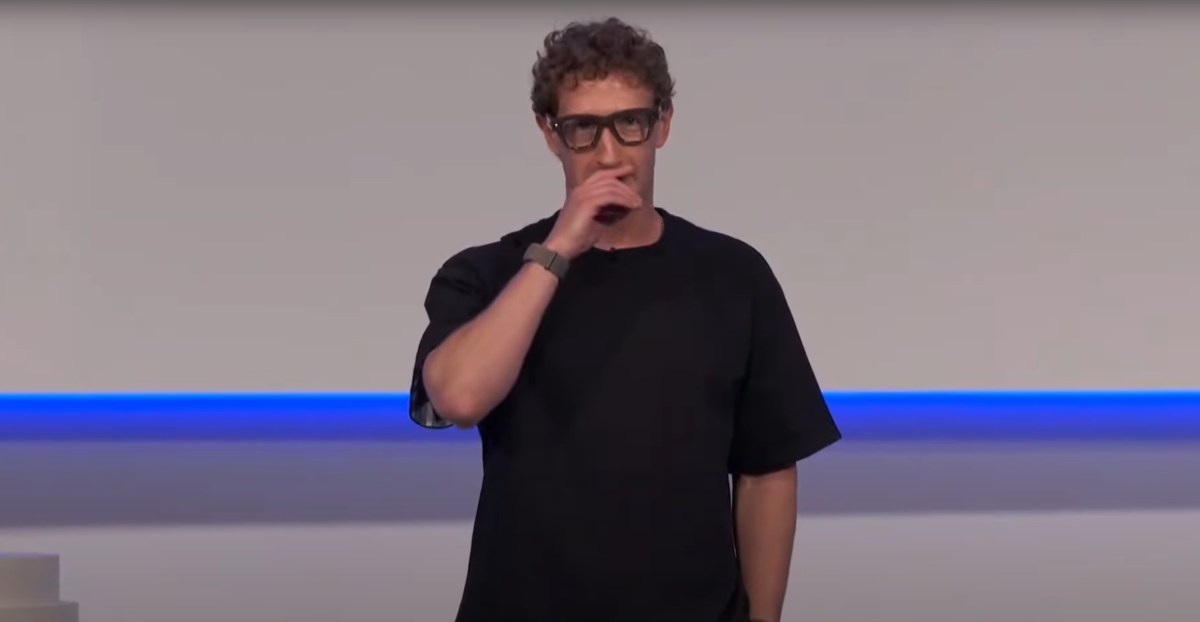
Google Pixel Watch 4: AI-powered health coach, repairable design, and Satellite SOS
Sources: https://www.theverge.com/hands-on/761918/google-pixel-watch-4-hands-on-smartwatch-wearable-gemini, theverge.com
TL;DR
- Pixel Watch 4 introduces a domed Actua 360 display with about 10% more visible screen space, 15% thinner bezels, and up to 3,000 nits brightness.
- On-device Gemini AI updates include a health coach and raised-to-talk gesture, with a revamped speaker and haptics for clearer interactions.
- Hardware and durability improvements: side-mounted charger, two tiny screws revealing replaceable display and battery, and a focus on repairability.
- Battery life and charging: 30 hours (41mm) / 40 hours (45mm); up to 2–3 days in battery saver; 15 minutes to 50% charging.
- Connectivity and sensors: dual-frequency GPS, Satellite SOS (LTE models, no extra subscription), and an upgraded on-device AI helped by the Snapdragon W5 Gen 2.
- AI health features arrive with a revamped Fitbit app in October, including a health coach that adapts to sleep and injuries.
Context and background
Google’s Pixel Watch started late to the wearable scene and was viewed by many as a first-generation device with rough edges. By 2025, Google presents a clearer vision of wearables as an “essential companion” that is intelligent, health-focused, and protective — a wearable that can coach users and act as a guardian even when a phone isn’t nearby. This framing comes from Google’s Pixel wearables team lead, Sandeep Waraich, and is reflected in the Pixel Watch 4’s design and software choices. The Verge notes that Google appears to be moving beyond incremental updates toward a cohesive wearable thesis that centers on AI and health coaching. The Verge.
What’s new
- Hardware: The Pixel Watch 4 features an all-new domed “Actua 360” display, where the dome isn’t just the glass but the display itself. The result is about 10% more visible screen space, 15% thinner bezels, and up to 3,000 nits of maximum brightness. The design emphasizes a rounder appearance with Material 3 Expressive in Wear OS 6. The display redesign includes smoother glanceable widgets and subtle animations reminiscent of a rain-droplet-inspired aesthetic.
- Battery and charging: Google reports improved battery life with a 41mm model rated at ~30 hours and a 45mm model at ~40 hours, with saver modes extending to roughly two and three days respectively. The side-mounted charger enables faster top-ups—about 15 minutes to 50% in testing.
- Repairs and durability: The lugs now reveal two tiny screws, and the display and battery are replaceable and repairable. Google says this will be true for every Pixel Watch going forward, aiming to improve durability and lifecycle.
- AI, assistant, and user interaction: Gemini now has a strong presence on the Pixel Watch 4, replacing Google Assistant for more complex queries. The device’s speaker and haptics were updated for clearer interactions, and a raise-to-talk gesture lets users speak to Gemini without the wake word.
- On-device AI and health features: The processor upgrade to Snapdragon W5 Gen 2 enables more on-device AI features like smarter replies. A major new feature is a Gemini-powered health coach that will arrive with an updated Fitbit app in October. The health coach promises more personalized workout planning, adjusting recommendations based on sleep quality and injury reports.
- GPS and safety: The Pixel Watch 4 includes more accurate dual-frequency GPS and introduces Satellite SOS mode, allowing emergency calls in remote areas via LTE models without an extra subscription.
- Ecosystem and apps: In line with Google’s “essential companion” thesis, Google emphasizes a continuous, ambient presence that helps coach health and safety when the phone isn’t around.
Why it matters (impact for developers/enterprises)
- On-device AI elevation: With the Snapdragon W5 Gen 2 and Gemini running more features locally, developers can build more responsive and private watch apps that don’t rely on cloud round-trips for every request.
- Health coaching as a platform: The Gemini-powered health coach, integrated with the Fitbit app, points toward more personalized, data-driven fitness experiences on wearables. Enterprises and fitness apps could leverage richer, on-device insights to tailor programs.
- User interaction changes: The raise-to-talk gesture and improved audio/haptics can influence how third-party apps implement voice-enabled features and notifications on watches.
- Repairability as a lifecycle advantage: The replaceable display and battery, plus non-proprietary screws, may reduce total cost of ownership for devices in enterprise fleets and long-term consumer use.
- Safety features without subscription: Satellite SOS brings emergency connectivity in remote areas without requiring an extra subscription, potentially expanding use cases for field workers or outdoor activities.
Technical details or Implementation
- Processor: Snapdragon W5 Gen 2 enables on-device AI features and more capable performance.
- Display: Actua 360 domed display providing ~10% more visible area and 15% thinner bezels, up to 3,000 nits brightness.
- OS and UI: Wear OS 6 with Material 3 Expressive; redesigned widgets with rounded edges and more glanceable complications.
- Battery and charging: 41mm ~30 hours; 45mm ~40 hours; battery saver mode extends to ~2–3 days; side-mounted charger with ~25% faster charging, ~15 minutes to 50%.
- Durability and repair: Replaceable display and battery; two small screws visible on the lugs for access.
- AI and assistant: Gemini replaces Google Assistant for more complex queries; new raise-to-talk gesture and updated speaker/haptics for better interaction.
- Health and safety: Gemini-powered health coach arriving with Fitbit app update in October; improved sleep algorithm; Satellite SOS mode available on LTE models with no extra fee.
- GPS: Dual-frequency GPS improvements for more accurate location data.
Key takeaways
- Google doubles down on AI-powered health coaching and a more capable, repairable hardware design for the Pixel Watch platform.
- The actua 360 domed display, brighter screen, and thinner bezels maximize the watch’s glanceable UX.
- On-device AI, faster charging, and a more robust build push the Pixel Watch toward being a true “essential companion.”
- Satellite SOS and dual-frequency GPS expand safety and navigation capabilities even when a phone is not nearby.
- Fitbit integration with a health coach in October signals a deeper fitness ecosystem around wearables.
FAQ
-
What is Actua 360 on the Pixel Watch 4?
It is a domed display design that increases visible screen space by about 10% with thinner bezels and brighter output up to 3,000 nits. [The Verge](https://www.theverge.com/hands-on/761918/google-pixel-watch-4-hands-on-smartwatch-wearable-gemini).
-
How long does the Pixel Watch 4 last on a charge?
The 41mm model is estimated at 30 hours and the 45mm at 40 hours, with battery saver extending to about two and three days respectively.
-
What is Satellite SOS?
A feature that lets you call emergency services in remote areas if you have the LTE version of the watch, with no additional subscription required.
-
Is the display and battery truly replaceable?
Yes—the Pixel Watch 4 uses two small screws and a design that makes the display and battery replaceable, a change Google says will extend to future Pixel Watches.
-
When will the health coach arrive?
The Gemini-powered health coach will arrive alongside a revamped Fitbit app in October.
References
- The Verge: Hands-on review of Google Pixel Watch 4 with Gemini and AI features. https://www.theverge.com/hands-on/761918/google-pixel-watch-4-hands-on-smartwatch-wearable-gemini
More news
First look at the Google Home app powered by Gemini
The Verge reports Google is updating the Google Home app to bring Gemini features, including an Ask Home search bar, a redesigned UI, and Gemini-driven controls for the home.
Meta’s failed Live AI smart glasses demos had nothing to do with Wi‑Fi, CTO explains
Meta’s live demos of Ray-Ban smart glasses with Live AI faced embarrassing failures. CTO Andrew Bosworth explains the causes, including self-inflicted traffic and a rare video-call bug, and notes the bug is fixed.
OpenAI reportedly developing smart speaker, glasses, voice recorder, and pin with Jony Ive
OpenAI is reportedly exploring a family of AI devices with Apple's former design chief Jony Ive, including a screen-free smart speaker, smart glasses, a voice recorder, and a wearable pin, with release targeted for late 2026 or early 2027. The Information cites sources with direct knowledge.
Shadow Leak shows how ChatGPT agents can exfiltrate Gmail data via prompt injection
Security researchers demonstrated a prompt-injection attack called Shadow Leak that leveraged ChatGPT’s Deep Research to covertly extract data from a Gmail inbox. OpenAI patched the flaw; the case highlights risks of agentic AI.
How chatbots and their makers are enabling AI psychosis
Explores AI psychosis, teen safety, and legal concerns as chatbots proliferate, based on Kashmir Hill's reporting for The Verge.
Google expands Gemini in Chrome with cross-platform rollout and no membership fee
Gemini AI in Chrome gains access to tabs, history, and Google properties, rolling out to Mac and Windows in the US without a fee, and enabling task automation and Workspace integrations.





